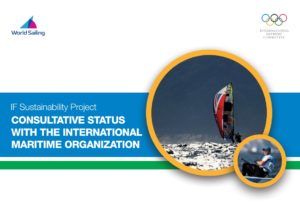
As a Non-Governmental Organisation (NGO), World Sailing was granted consultative status within the International Maritime Organization (IMO) in 1999, when the IF was known as the International Sailing Federation (ISAF). Through having this status, World Sailing has been able to discuss relevant issues and provide advice during meetings. However, consultative status does not confer voting rights. World Sailing has been represented at IMO meetings by members of the IF’s International Regulations Commission. World Sailing’s position at IMO was particularly felt during the period when the IMO’s Sub-Committee on Bulk Liquids & Gases (BLG) started to develop “Guidelines for the control and management of ship’s biofouling to minimise the transfer of invasive aquatic species”. The guidelines covered all ships within its scope, including small boats.


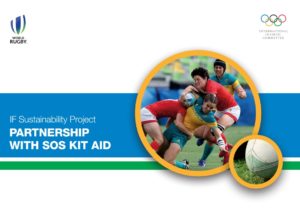
More than 15 years ago, World Rugby (formerly the International Rugby Board) partnered with SOS Kit Aid, a developing rugby-oriented charity that had been founded by former rugby player John Broadfoot following a visit to Romania in 2000. SOS Kit Aid mission is to recycle rugby kit for the benefit of young people around the world. The organisation seeks to make a positive impact on children’s lives by giving them the chance to participate in sporting activities, while also promoting social inclusion and protecting the environment. Since its first delivery of rugby kits in 2001, SOS Kit Aid has made approximately 500 donations to more than 35 countries, including Moldova, Georgia, Kenya, Swaziland, Ecuador and Fiji.




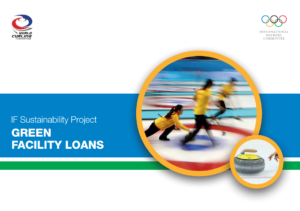
Following the success of the World Curling Federation's (WCF) New Facility Loan programme, which allows member associations (National Federations; NFs) to apply for loans to build new curling rinks, the WCF decided to create a Green Facility Loan initiative. Designed in a similar manner to the New Facility Loans, Green Facility Loans provide an opportunity for members and clubs within NFs to access funding in order to improve existing facilities with new technologies and equipment that is more sustainable and may help to reduce energy costs.


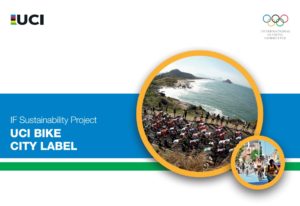
In 2015, the Union Cycliste Internationale (UCI) decided to relaunch the UCI Bike City label, which had been designed to reward bike-friendly cities. The programme, which started ten years ago, was revamped with new criteria to appeal to a wider number of cities. The first new UCI Bike City labels were awarded in October 2016 to Bergen (Norway), Drenthe (the Netherlands) and Limburg-Valkenburg (the Netherlands), and will be valid for four years.



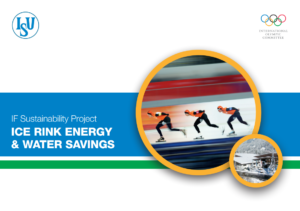
The Eissportzentrum Oberstdorf is the national training centre for figure skating in Germany, supported financially by the German and Bavarian state governments and owned by the community of Oberstdorf. The community and the government sought to implement two new systems to reduce energy costs and conserve water.


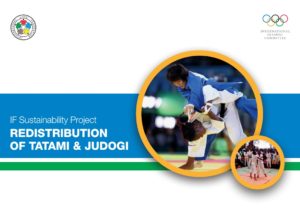
The International Judo Federation (IJF) purchases tatami and judogi when hosting major events. The tatami and judogi are sourced only from manufacturers who have met IJF regulations with regard to such matters as safety, production standards, fire resistance, homogeneity and stiffness. Since 2007, the IJF has institutionalised a redistribution programme of used tatami and judogis, which are allocated based on requests made by member federations.



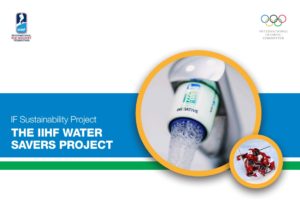
In 2013, the International Ice Hockey Federation (IIHF) Social & Environment Committee launched its first water savers distribution project. The programme consisted of issuing small packages containing three simple devices that are attached to faucets in order to significantly reduce water consumption. The project formed part of an overall effort by the committee to respond to the desire of its members to take a more sustainable approach in daily activities. The IIHF commissioned Adcom, a Swiss marketing company, to create customised water savers.


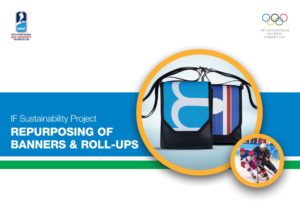
The International Ice Hockey Federation (IIHF) began its banner repurposing project after the annual General Congress in 2012. Members agreed that the roll-ups created for the event carried a significant cost and should be reused in a creative way rather than simply being disposed of. The idea of reusing materials had previously been raised during meetings of the IIHF Social & Environment Committee, and members considered Congress to be the perfect opportunity to kick-start the repurposing programme.


In 2013, the International Canoe Federation (ICF) was approached by Paddle for the Planet (P4P), a registered NGO that unites paddlers and watermen for conservation, about the possibility of forming a partnership. P4P’s signature event is the annual Global Paddling Relay: simultaneous paddling events that start sequentially, on the same day and at the same time, in different time zones all over the world, thereby creating a global relay. Paddlers of any type of paddling craft (rowing boats, dragon boats, canoes, kayaks and others) are united through the event.


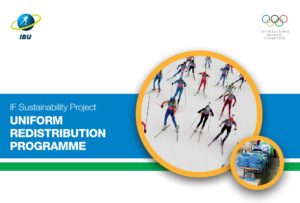
Since 2008, the International Biathlon Union (IBU) has received approximately 100 competition packages every two years for its international referees and technical delegates through its partnerships with suppliers. The uniform packages include boots, winter jackets, tops, trousers and raincoats, ensuring officials are correctly clothed for the winter weather conditions during competition and are easily recognisable as IBU officials. When new sets of uniforms are dispatched, the IBU asks officials to return their previous sets. This request is designed to ensure that there is no confusion regarding which set is currently valid for use. Approximately 80 of these used uniforms are then sent to a local partner company for repairs and to remove the IBU officials logo, at a total cost every two years of approximately €12,000.

